Space
Sign up for our newsletter
We summarize the week's scientific breakthroughs every Thursday.
-
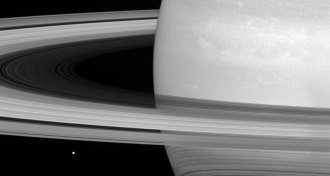 Planetary Science
Planetary ScienceSaturn’s rings mess with the gas giant’s atmosphere
Data from Cassini’s shallow dives into Saturn’s ionosphere show that this charged layer in the atmosphere interacts with the planet’s rings.
-
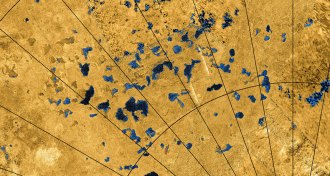 Astronomy
AstronomyMost complete map of Titan reveals connected seas and cookie-cutter lakes
The latest map of Titan, based on all the data from the Cassini spacecraft, displays new details about the moon’s lakes and seas.
-
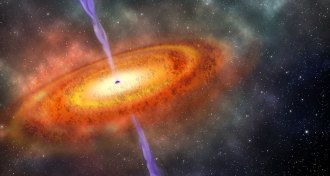 Astronomy
AstronomyThe most distant quasar ever spotted hails from the universe’s infancy
The new record-holder for faraway quasars comes from a period of rapid change in the universe.
-
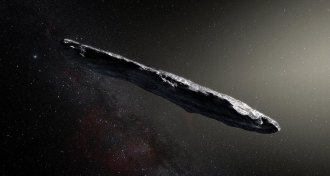 Astronomy
AstronomyWe still don’t know where the first interstellar asteroid came from
Astronomers are tracking stars to see if one of them launched the first interstellar asteroid at Earth.
-
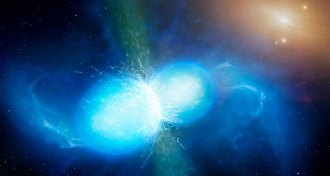 Physics
PhysicsCollision illuminates the mysterious makeup of neutron stars
Scientists size up neutron stars using gravitational waves and light.
-
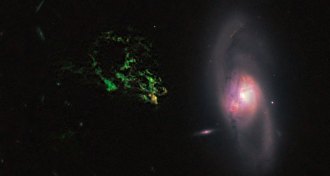 Astronomy
AstronomyHere’s what really happened to Hanny’s Voorwerp
Glowing clouds of gas known as Hanny’s Voorwerp offer a way to study galaxies and black holes in the distant past.
-
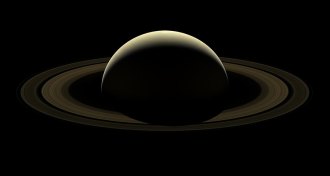 Astronomy
AstronomyHere is Cassini’s last broad look at the Saturn system
Two days before plunging into Saturn, Cassini took a mosaic image of the gas giant, its rings and its moons.
-
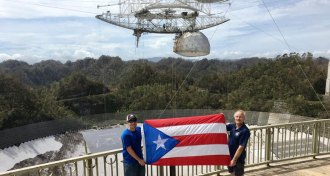 Astronomy
AstronomyThe Arecibo Observatory will remain open, NSF says
The iconic Arecibo radio telescope has survived Hurricane Maria and dodged deep funding cuts.
-
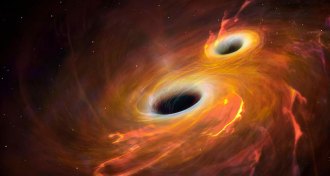 Physics
PhysicsColliding black holes are reported for a fifth time
LIGO spots another merger, this time with less fanfare.
-
 Science & Society
Science & SocietyIn science, some big risks are worth the rewards
Acting Editor in Chief Elizabeth Quill says scientists sometimes take risks that can lead to significant rewards and important discoveries.
-
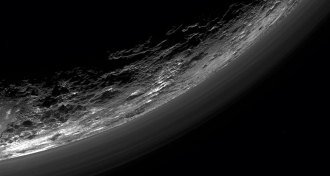 Astronomy
AstronomyHaze keeps Pluto cool by kicking heat out to space
Pluto may be the only place in the solar system whose atmosphere is kept cool by solid hazes, not warmed by gas.
-
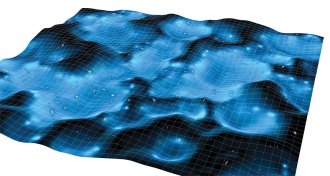 Cosmology
CosmologySimulating the universe using Einstein’s theory of gravity may solve cosmic puzzles
Better simulating the dense parts of the universe could improve scientists’ view of how the universe evolves.